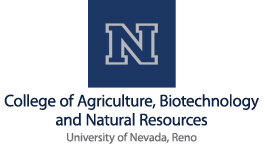Team:Nevada/RD29A
From 2010.igem.org
(→Promoters) |
|||
| (14 intermediate revisions not shown) | |||
| Line 1: | Line 1: | ||
{{nevadaRD29A}} | {{nevadaRD29A}} | ||
| - | |||
== Promoters == | == Promoters == | ||
| - | |||
| - | |||
| - | |||
| - | |||
<html> | <html> | ||
| Line 13: | Line 8: | ||
<ul> | <ul> | ||
<li><a href="https://2010.igem.org/Team:Nevada/DREB1C" tabindex="1">DREB1C</a></li> | <li><a href="https://2010.igem.org/Team:Nevada/DREB1C" tabindex="1">DREB1C</a></li> | ||
| - | <li><a href="https://2010.igem.org/Team:Nevada/RD29A" tabindex="2"> | + | <li><a href="https://2010.igem.org/Team:Nevada/RD29A" tabindex="2">rd29A</a></li> |
<li><a href="https://2010.igem.org/Team:Nevada/35S" tabindex="3">35S</a></li> | <li><a href="https://2010.igem.org/Team:Nevada/35S" tabindex="3">35S</a></li> | ||
<li><a href="https://2010.igem.org/Team:Nevada/CD2Inducible" tabindex="4">CD2+ Inducible</a></li> | <li><a href="https://2010.igem.org/Team:Nevada/CD2Inducible" tabindex="4">CD2+ Inducible</a></li> | ||
| Line 23: | Line 18: | ||
---- | ---- | ||
| - | + | <html><a href="https://static.igem.org/mediawiki/2010/c/c1/Picture_17.png"><img src="https://static.igem.org/mediawiki/2010/c/c1/Picture_17.png" class="shadow" style="float:left;width:200px;margin:10px"></a> | |
| - | <a href="https://static.igem.org/mediawiki/2010/c/c1/Picture_17.png"><img src="https://static.igem.org/mediawiki/2010/c/c1/Picture_17.png" class="shadow" style="float:left;width:200px;margin:10px"></a> | + | </html> |
| - | </html> | + | |
| - | + | ||
| - | + | ||
| - | + | ||
| - | + | ||
| - | + | ||
| - | + | ||
| - | + | ||
| - | + | ||
| - | + | ||
| - | + | ||
| + | <p>In our project, we designed the <html><a href="https://2010.igem.org/Team:Nevada/RD29APromoter">rd29A</a></html> Promoter and the <html><a href="https://2010.igem.org/Team:Nevada/RD29APromoter">rd29A</a></html> Promoter + Strong Plant Kozak (RBS) + RFP. These both came from the synthetic design that contained the <html><a href="https://2010.igem.org/Team:Nevada/RD29APromoter">rd29A</a></html> Promoter + Strong Plant Kozak (RBS) + RFP in the pMA vector. | ||
| + | The <html><a href="https://2010.igem.org/Team:Nevada/RD29APromoter">rd29A</a></html> promoter was isolated by the use of the <html><a href="https://2010.igem.org/Team:Nevada/RD29APromoter">rd29A</a></html> designed primers in PCR. This was blunt end Topo cloned, digested with EcoR 1 and Pst 1 sites, and was then ligated to the pSB1C3 vector. | ||
| + | The design of the <html><a href="https://2010.igem.org/Team:Nevada/RD29APromoter">rd29A</a></html> Promoter + Strong Plant Kozak (RBS) + RFP involved the ligation to the pSB1C3 vector using the EcoR 1 and Pst 1 sites. This composite part contains both the promoter and the reporter gene. This functions when the promoter is activated during environmental stress, which would then allow the expression of red fluorescence in plants that can be used as a warning signal to farmers that their plants are under stress.</p> | ||
| + | <br> | ||
| + | <br>'''References''' | ||
| + | <br> | ||
| + | '''Cong L, Zheng H, Zhang Y, Chai T.''' Arabidopsis DREB1A confers high salinity tolerance and regulates the expression of GA dioxygenases in Tobacco. Plant Science [serial online]. February 2008;174(2):156-164. Available from: Academic Search Premier, Ipswich, MA. Accessed October 24, 2010. | ||
| + | <br> | ||
| + | '''Babak B, Akira K, Fevziye C, Mie K, Kazuko Y, Kazuo W.''' Arabidopsis rd29A::DREB1A enhances freezing tolerance in transgenic potato. Plant Cell Reports [serial online]. August 26, 2007;26(8):1275-1282. Available from: Academic Search Premier, Ipswich, MA. Accessed October 25, 2010. | ||
| Line 46: | Line 39: | ||
!align="center"|[[Image:Promega_logo.jpg]] | !align="center"|[[Image:Promega_logo.jpg]] | ||
!align="center"|[[Image:Invitrogen_logo.jpeg]] | !align="center"|[[Image:Invitrogen_logo.jpeg]] | ||
| + | !align="center"|[[Image:Sda logo small.jpg]] | ||
|} | |} | ||
Latest revision as of 21:42, 27 October 2010

Promoters
 RD29A Promoter + Strong Plant Kozak (RBS) + RFP Team:Nevada/registry submissions
RD29A Promoter + Strong Plant Kozak (RBS) + RFP Team:Nevada/registry submissions
In our project, we designed the rd29A Promoter and the rd29A Promoter + Strong Plant Kozak (RBS) + RFP. These both came from the synthetic design that contained the rd29A Promoter + Strong Plant Kozak (RBS) + RFP in the pMA vector. The rd29A promoter was isolated by the use of the rd29A designed primers in PCR. This was blunt end Topo cloned, digested with EcoR 1 and Pst 1 sites, and was then ligated to the pSB1C3 vector. The design of the rd29A Promoter + Strong Plant Kozak (RBS) + RFP involved the ligation to the pSB1C3 vector using the EcoR 1 and Pst 1 sites. This composite part contains both the promoter and the reporter gene. This functions when the promoter is activated during environmental stress, which would then allow the expression of red fluorescence in plants that can be used as a warning signal to farmers that their plants are under stress.
References
Cong L, Zheng H, Zhang Y, Chai T. Arabidopsis DREB1A confers high salinity tolerance and regulates the expression of GA dioxygenases in Tobacco. Plant Science [serial online]. February 2008;174(2):156-164. Available from: Academic Search Premier, Ipswich, MA. Accessed October 24, 2010.
Babak B, Akira K, Fevziye C, Mie K, Kazuko Y, Kazuo W. Arabidopsis rd29A::DREB1A enhances freezing tolerance in transgenic potato. Plant Cell Reports [serial online]. August 26, 2007;26(8):1275-1282. Available from: Academic Search Premier, Ipswich, MA. Accessed October 25, 2010.

| 
| 
| 
| 
| 
|
|---|
 "
"
